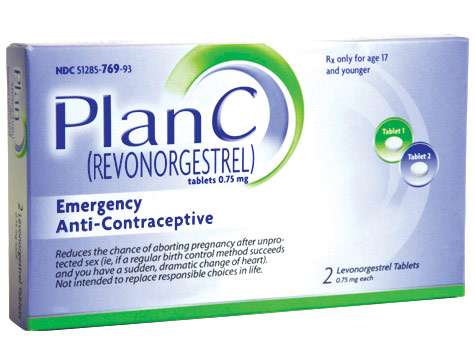Science, Sex, and Birth Control
We don't have a pro-science party and an anti-science party. We have two anti-science parties.
Democrats claim we have one party that upholds science and one that rejects it. When it comes to climate change, presidential polling, evolution and other topics, we are told, Republicans have no use for actual experts. They'd rather listen to Rep. Michele Bachmann, who claimed the HPV vaccine causes mental retardation.
But today, I'm glad to report the Democratic charge has been discredited. We don't have a pro-science party and an anti-science party. We have two anti-science parties.

That's the clear implication of the controversy over Plan B, the "morning-after" pill that is used to avert pregnancy after unprotected sex. The GOP and its anti-abortion allies have long decried it as an "abortion pill," disregarding scientists who say it isn't. But President Barack Obama and his Health and Human Services secretary, Kathleen Sebelius, have shown they too know how to close their ears to unwelcome facts.
In 2011, the Food and Drug Administration decided to allow Plan B to be sold over-the-counter with no age restriction. Sebelius overruled that decision, mandating that girls under age 17 be required to get a prescription. It was the first time an HHS secretary had ever countermanded the FDA.
Obama backed her up, arguing that she imposed the limit because she wasn't keen on the idea "that a 10-year-old or an 11-year-old go into a drugstore, should be able -- alongside bubble gum or batteries -- be able to buy a medication that potentially, if not used properly, could end up having an adverse effect."
But this week, it was Sebelius who found herself overruled. U.S. District Judge Edward Korman said it wasn't clear that the secretary even had the legal authority to interfere with the FDA policy -- and if she did, her policy was illegal because it was "arbitrary, capricious and unreasonable."
The Supreme Court has long taken the view that the government has no business getting between companies that make contraceptives and consumers who want to buy them. In 1972, it invalidated a Massachusetts law forbidding doctors from giving contraceptives to anyone who was not married. "If the right of privacy means anything," the court said, "it is the right of the individual, married or single, to be free from unwarranted governmental intrusion into matters so fundamentally affecting a person as the decision whether to bear or beget a child."
Sebelius' decision made Plan B far harder to get for anyone under 17 -- not to mention those who are 17 or older but lack identification to prove their age. The effect was to make adolescent sex more dangerous than it has to be.
But the government has no right to inflict such fear on unwilling females of any age. As the judge put it, the policy was "an excuse to deprive the overwhelming majority of women of their right to obtain contraceptives without unjustified and burdensome restrictions."
It also required the administration to turn a blind eye to the important realities. One is that the government already allows 10-year-olds to buy medications that can be harmful or even fatal -- such as acetaminophen, which can be used to commit suicide, laxatives, which are often used by bulimics, and cold medicines that can produce a high.
By contrast, this particular drug is free of serious risks. Plan B contraceptives, wrote Korman, "would be probably among the safest drugs approved for over-the-counter sale for the pediatric population."
Nor, despite the obstinate claims of opponents, are they "abortion drugs." The Government Accountability Office reports that they "have not been shown to cause a post-fertilization event -- a change in the uterus that could interfere with the implantation of a fertilized egg."
If the president is truly concerned about the possible adverse effects of Plan B, he should ask: Compared to what? Pregnancy and childbirth are not exactly risk-free. They raise the risk of blood clots, strokes and heart attacks, among other unwanted side effects.
Each year in the United States, The St. Louis Post-Dispatch reports, "about 700 women die of pregnancy-related complications and 52,000 experience emergencies such as acute renal failure, shock, respiratory distress, aneurysms and heart surgery. An additional 34,000 barely avoid death."
The district court judge recognized the absurdity of protecting teenagers from the imaginary risks of using a safe contraceptive while forcing them to accept the authentic ones that contraceptives can prevent. It was a triumph for science and rationality -- two commodities that Democrats as well as Republicans can often manage without.


Show Comments (47)